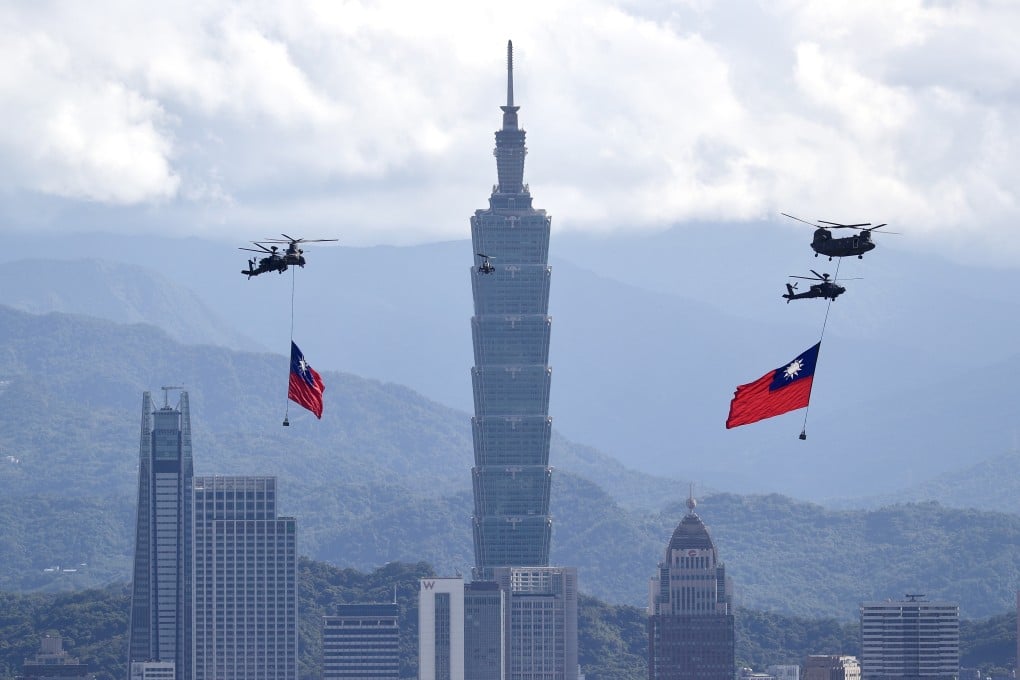Advertisement
Most Taiwanese not worried Beijing will attack any time soon, polls suggest
- Attempt to unify Taiwan with mainland China in the coming years not seen as likely by majority in recent surveys
- But observers say mainland political dynamics and a lack of cross-strait dialogue should discourage a false sense of security
Reading Time:4 minutes
Why you can trust SCMP
99+

Most people in Taiwan are not expecting an imminent war over the island despite high cross-strait tensions, surveys suggest – but it is a sentiment that risks complacency, according to analysts.
On Monday, 56 People’s Liberation Army (PLA) fighter jets – the most in one day to date – entered Taiwan’s air defence identification zone (ADIZ), following months of such flights. Two days later, Taiwanese Defence Minister Chiu Kuo-cheng warned that Beijing would be “fully able” to invade the self-ruled island by 2025.
Yet polling in September suggested that a majority of the Taiwanese public were not concerned about the possibility. In a survey by think tank Intelligentsia Taipei, 50.2 per cent of respondents in Taipei said they did not think that war was likely.
Advertisement
Sixty per cent said they did not think there would be a war within 10 years, against 18 per cent who said there would.

00:00
Taiwan denounces mainland China for ‘over the top’ flights into island’s air defence zone
Taiwan denounces mainland China for ‘over the top’ flights into island’s air defence zone
In another opinion poll in March, by the Taiwan International Strategic Study Society, 63 per cent of respondents did not think Beijing would attack Taiwan within six years, as opposed to 29 per cent who thought it would.
Advertisement
Advertisement
Select Voice
Choose your listening speed
Get through articles 2x faster
1.25x
250 WPM
Slow
Average
Fast
1.25x